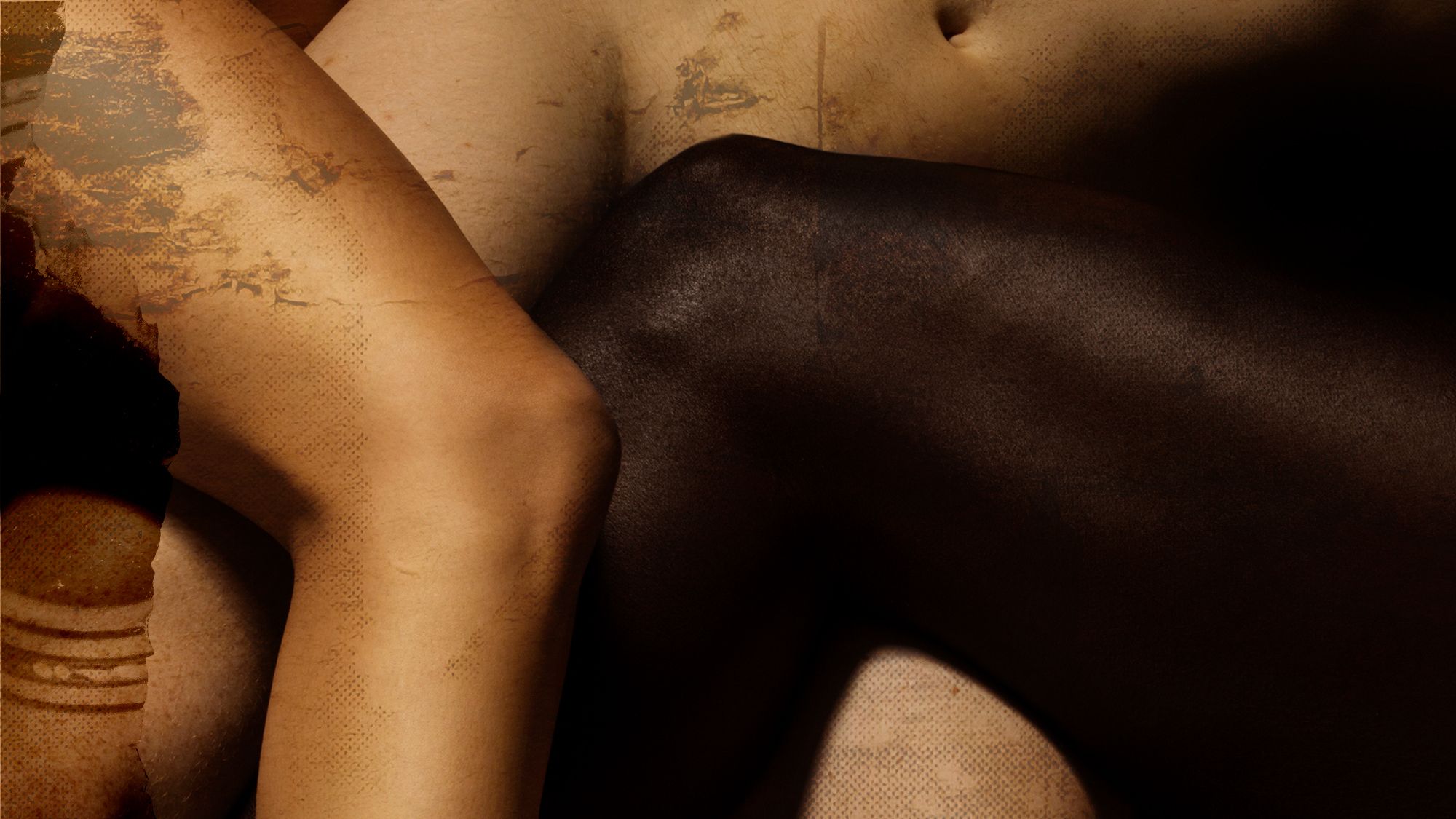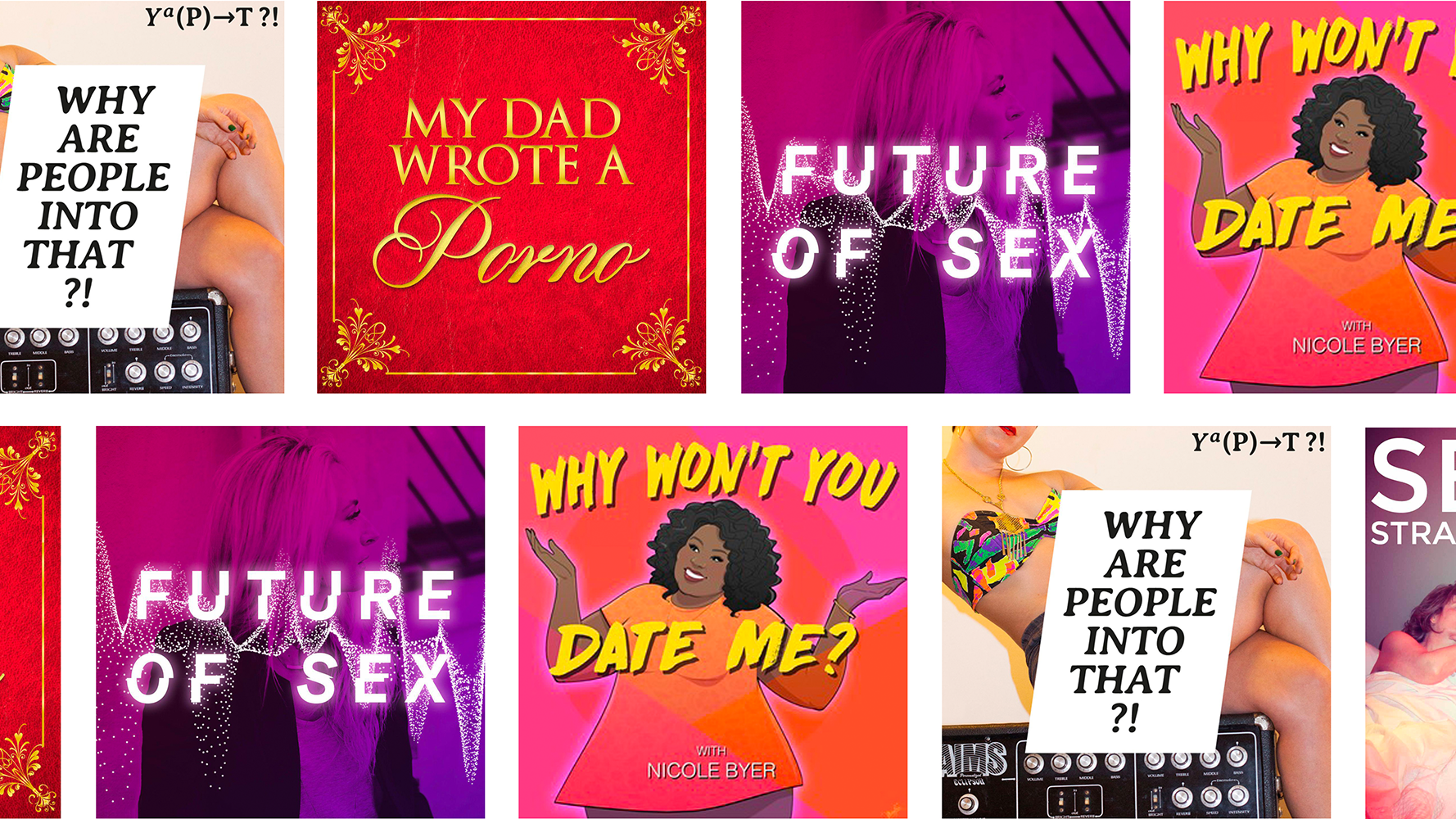It's Time for the Sex Toy Industry to Reckon With Its Racism
Meet the Black female entrepreneurs trying to make pleasure equitable.


Kandi Burruss was growing restless. She’d already scored a platinum album, won a Grammy, and starred on The Real Housewives of Atlanta. But no matter her accomplishments, in 2011, nobody wanted her to be the face of an ad campaign.
“There were only very few Black women who were being chosen to represent brands, and there were maybe three [women] constantly being used over and over again for all the major brands,” Burruss tells Marie Claire. “One day I just said to my team, ‘I don't even care. I'm tired of even asking how to be the face of somebody else's brand. I'm gonna build my own brand.’”
So Burruss started Bedroom Kandi, a line of sex toys that grew into a home-party plan company (also known as a direct sales company, like Avon). Her goal was to “help make sex a more comfortable conversation for Black women to have,” she says. “I was one of the very first well-known Black women who was very unapologetically open in speaking about sex and relationships to sell products.”
Burruss has to deal not only with the hardships of being a female entrepreneur in a male-dominated industry, but also with being a Black business owner in a white-led world. While statistics on the racial make-up of sex-toy company executives and customers are not currently available, Scott Watkins, the vice president of sales for the Doc Johnson company, confirms that most major sex-toy companies were founded by white people. Additionally, a 2012 study of home sex toy party attendees found that less than 4 percent of attendees were Black.
“There is a very strong tokenism in the industry,” says Tracy Felder, a brand ambassador for sex-toy company Children of the Revolution. “It just makes it feel like at times you have to work twice as hard.” She says while the company she works for is great, when she attends trade shows, white men assume she is a model—even though she wears a badge explaining her role. “As Black women, we’re fetishized,” she adds.
The racial biases that Felder and Burruss have felt has deep roots in the sex toy business. The modern industry was founded in the 1960s and 1970s by white men who packaged and sold their devices at "adult bookstores" to appeal to other white men, the predominant shoppers at the time. Historically, “flesh” dildos and vibrators were the color of Caucasian skin, while African-American sex toys were intentionally oversized and stark, crayon black. It wasn’t until Grenadian immigrant Gosnell Duncan came onto the scene in the 1970s and created the first silicone dildo, in a wide variety of Black and Brown skin tones, that things slowly began to change.
Yet, even 50 years later, authentically depicted dildos aren’t easy to get. “It's hard finding stuff that, 1) is made out of good materials, and 2) actually looks like Black people's skin, and 3) [has packaging that] is not racist and derogatory and makes you feel like crap,” says Shani Hart, CEO of Hart’s Desires, a sex toy store with two locations in the D.C. area. Not only are good, racially-diverse toys difficult to find, but so are brick-and-mortar retail outlets in predominantly black neighborhoods. (Online, it’s easier to find diverse toys, through companies like New York Toy Collective and SheVibe.com.) That’s one of the reasons Hart and her husband founded Hart’s Desires. “I wanted Black people to be able to read Essence magazine and see the ads for Womanizers and the Satisfyers and actually go to their local store and get quality products,” she says.
Get exclusive access to fashion and beauty trends, hot-off-the-press celebrity news, and more.
There is a very strong tokenism in the industry. As Black women we’re fetishized
While women like Hart have been trying to change the sex toy industry for years, the recent resurgence of the Black Lives Matter movement has more people-in-charge finally starting to take notice of the systemic racism within their own companies.
In June, industry publication Xbiz held a roundtable discussion on race, out of which participants created an action plan for pleasure products companies. The plan included such initiatives as hiring more Black people and people of color in management positions and adding more images of Black people to packaging. Other companies, like Unbound Babes and Dame Products, made sure to double down on their public statements in support of Black Lives Matter. Unbound Babes made Juneteenth an official company holiday and vowed to match donations to the Mutual Aid Fund for Sex Workers of Color, while Dame Products made donations to a number of organizations, including the Marsha P. Johnson Institute.
Yet one of the companies that released a similar statement, Pipedream Products, still has a male masturbation sleeve for sale on Amazon that uses racist language: The packaging reads “Flip a Sista Over” and “Jizzle in My Nizzle for Shizzle.” Hart called out Pipedream’s hypocrisy on social media, and after seeing her post, an executive for Pipedream reached out to her. In the conversation, Hart says she encouraged the exec to hire more Black employees and to change its packaging in consultation with Black consumers. In a statement to Marie Claire, Pipedream revealed that 22 percent of its current leadership team is Black and said that “the packaging in question was updated when the new management took over [around two years ago] and is part of the continuous improvement that we strive for.” (The company did not return a request for comment on why the product in the old packaging is still available from affiliate retailers on Amazon or if they are pursuing efforts to remove it.)
For Tamara P. Bell, founder of the Home Party Plan Association, an organization that helps home party companies select sex toys directly from the manufacturers, the strides forward are welcome, though a long time coming. She recalls seeing more products directed to the Black community at sex toy trade shows about a decade ago, but “they were doing it in a very derogatory way, [featuring outdated stereotypes], and so I had to call a couple of manufacturers out.” In April 2010, she formed a group of industry CEOs which has met every six months to talk about race “behind closed doors.” (They plan to resume the forums in the fall, or as soon as COVID-19 restrictions allow.)
While hiring more Black people, specifically in decision-making roles, will help create noticeable change in the industry, it’s become clear that simply being a Black female sex toy entrepreneur is helping pave the path forward and make room for others. For instance, Burruss says that almost 90 percent of her company’s consultants are Black and the majority of her customers are too. And one of her Black female contemporaries, Nenna Joiner, founder of Feelmore in Oakland, says she made sure to keep her sex-toy store open during Oakland’s BLM protests, providing goggles and band-aids for the protestors.
“Being open as a Black business is a form of activism,” Joiner says. “You’ve got to be out there protesting, but my protest is also a pleasure activism and making sure that my business, a Black business, stays open, stays available to the community.”
For more stories like this, including celebrity news, beauty and fashion advice, savvy political commentary, and fascinating features, sign up for the Marie Claire newsletter.
RELATED STORIES

My Friends and I Swap Nudes as a Form of Self-Care

Hallie Lieberman, a historian and journalist, is the author of Buzz: A Stimulating History of the Sex Toy and is currently writing a book on the history of gigolos.
